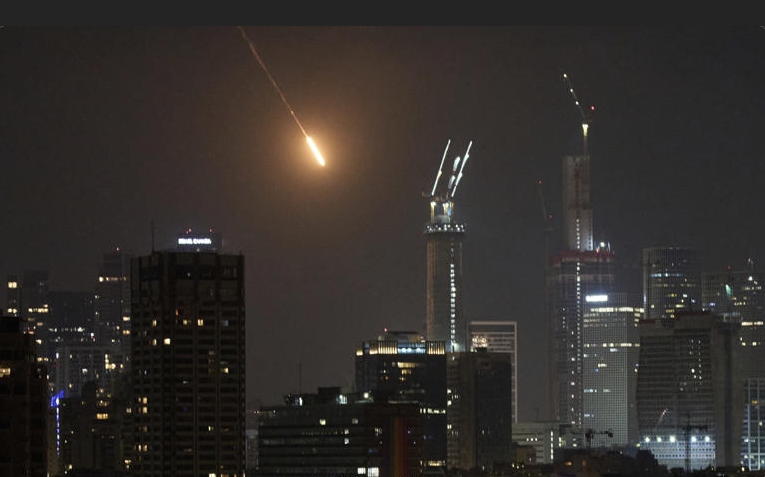
Washington, D.C. — A volatile new phase of direct military confrontation has erupted in the Middle East, as Israel launched coordinated strikes on Iran’s nuclear and military infrastructure Friday, prompting swift and forceful retaliation from Tehran. The series of attacks marks one of the most dramatic escalations between the two longtime adversaries, drawing international concern and heightening fears of a broader regional conflict.
Israel’s air assault, involving fighter jets and drones reportedly smuggled into Iran over recent months, targeted critical facilities tied to Iran’s nuclear ambitions. The strikes reportedly killed high-ranking Iranian military officials and scientists, as well as caused damage to infrastructure central to Iran’s nuclear development. Israeli authorities framed the operation as a preemptive measure against what they allege is Iran’s advancing path toward nuclear weapons capability.
In response, Iran launched multiple barrages of ballistic missiles into Israeli territory late Friday and into Saturday morning. Explosions lit up the skies above Jerusalem and Tel Aviv as air raid sirens sounded and missile defense systems attempted to intercept the incoming threats. Damage was reported in multiple cities, including Tel Aviv, where residential buildings were struck and vehicles incinerated. Israeli emergency services confirmed at least 34 injuries in the Tel Aviv area, including one woman critically wounded after being trapped under rubble in Ramat Gan.
Iran’s Nour News agency, with ties to the Revolutionary Guard, confirmed a sustained missile campaign was underway. Several missiles evaded interception and impacted targets in central Israel. Simultaneously, the Iranian capital of Tehran experienced air raid sirens and the sound of its air defense systems engaging targets. A fire was reported at Mehrabad International Airport, with video footage showing thick plumes of smoke and flames rising from the area.
Iran’s U.N. delegation reported that 78 individuals were killed and over 320 injured in the Israeli strikes, while Israeli figures on casualties from Iran’s retaliatory barrages continue to emerge. Tehran has vowed further response, with Supreme Leader Ayatollah Ali Khamenei stating the attacks would not go unanswered.
The United States, while not directly involved, has deployed regional air defense assets in support of its ally. American systems engaged in intercepting Iranian missiles aimed at Israeli targets, according to a U.S. official speaking anonymously.
The strike on Iran comes just one day after Tehran was censured by the International Atomic Energy Agency for failing to comply with nuclear non-proliferation protocols. Israel, long vocal in its opposition to Iran’s nuclear activities, appears to have capitalized on shifting geopolitical circumstances — including the reelection of President Donald Trump and the destabilizing aftermath of the October 7 Hamas attack — to execute its long-threatened operation.
Prime Minister Benjamin Netanyahu has confirmed that Washington was notified ahead of the strike, though it remains unclear whether the U.S. approved or coordinated in any capacity.
With tensions boiling over and both nations absorbing and responding to direct strikes, analysts warn the region may be on the brink of a wider war — one that could involve proxy actors, global powers, and critical energy corridors. The international community is urging de-escalation, but the latest developments underscore the fragility of a region teetering on the edge.
The Washington Herald
editorial@thewashingtonherald.com
Washington, D.C.

Be First to Comment